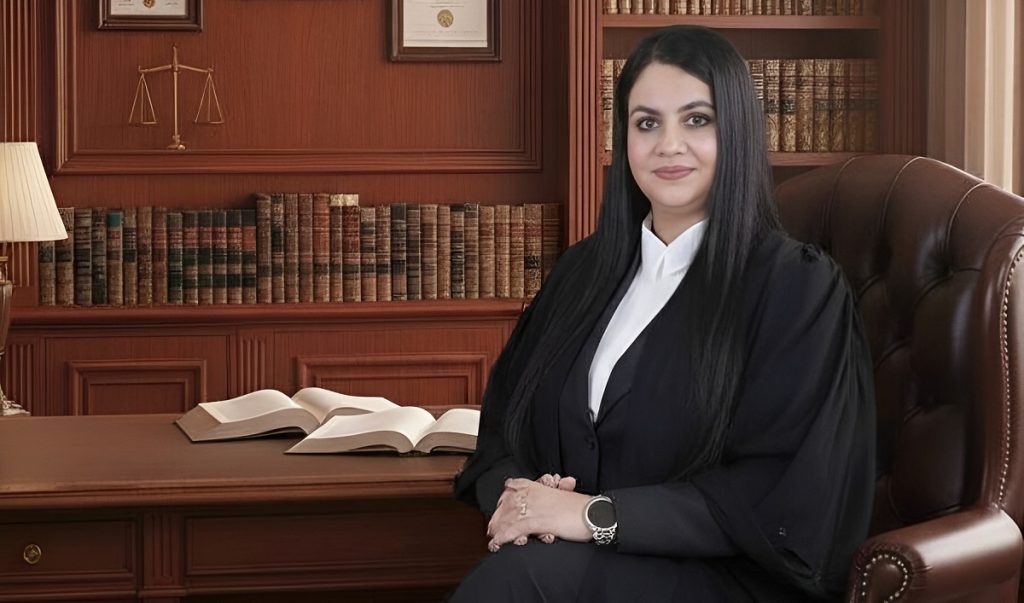This interview has been published by Anshi Mudgal and The SuperLawyer Team
Ma’am, you have extensive experience in litigation, arbitration, and white-collar crime. What initially drew you to law as a career? How has your approach evolved over the years?
I was drawn to law by a deep interest in how it shapes society and protects rights. From the start, I saw it as more than just statutes, it’s about people, justice, and creating real impact. Over the years, my approach has evolved from simply arguing cases to offering holistic solutions. Handling complex disputes in arbitration, construction, corporate matters, and white-collar crimes has taught me to blend legal strategy with commercial insight and human understanding. Today, I focus on resolving conflicts in a way that is not only legally sound but also practical and aligned with my clients’ broader goals.
Having completed your law degree, what motivated you to focus on arbitration and alternative dispute resolution, and how did your education shape your career trajectory?
My interest in arbitration and alternative dispute resolution grew during law school, but it truly took shape during an internship with BHEL, where I was first introduced to the practical side of arbitration. Seeing how complex commercial disputes could be resolved more efficiently and collaboratively outside traditional courts left a deep impression on me. This experience, combined with my Advanced Diploma in ADR from NALSAR, strengthened my resolve to pursue this field. It taught me to view disputes not merely as battles to be fought but as challenges to be resolved strategically, with solutions that balance legal precision and business realities. That foundation has shaped my career path, enabling me to build a strong practice in construction arbitration, commercial disputes, and complex contractual matters, where I focus on delivering outcomes that are both effective and commercially viable.
You founded your own practice, handling complex and high-stakes matters. Which early experiences laid the foundation for establishing your independent practice, and what challenges did you face in building it?
My early work in litigation and arbitration, particularly before High Courts, tribunals, and arbitral forums, laid a strong foundation for building my independent practice. A pivotal part of this journey was my longest professional association with H&A Associates, where I had the privilege of working under the guidance of Mr. S.W. Haider, one of the finest mentors one could have. His mentorship and insight shaped my understanding of complex legal strategy and advocacy at a very early stage. During this period, I gained vast experience handling high-stakes disputes, including those involving major government authorities such as Indian Railways, NHAI and CPWD. This experience gave me the confidence and capability to establish Law Chambers of Pooja Dua. Although building an independent practice came with challenges from creating a strong client base to managing multifaceted matters each milestone strengthened the firm’s foundation. Today, it stands as a multi-specialty practice known for handling intricate disputes with legal precision, strategic foresight, and client-centric advocacy.
Your practice spans both domestic and international arbitration, particularly in infrastructure, construction, and industrial projects. How do you navigate the strategic and procedural differences between domestic and international arbitration?
Domestic and international arbitrations may share the same foundation, but they demand very different approaches. In domestic matters, especially in infrastructure and construction disputes, the focus is on procedural efficiency and aligning with Indian laws and judicial precedents. International arbitration, on the other hand, brings in added layers different institutional rules, cross-border legal issues, cultural nuances, and enforcement across jurisdictions. My experience in both has taught me to adapt quickly and plan strategy from the outset, ensuring the process is not only legally sound but also practical and commercially effective for my clients.
Having handled a variety of cases, could you share a particularly challenging dispute or arbitration, and how you approached dealing with such a high stake matter?
One of the most challenging matters I handled was a multi-crore construction arbitration against a government authority, involving complex technical issues, strict contractual timelines, and significant financial exposure for my client. The stakes were extremely high both commercially and reputationally. My approach was to go beyond pure legal strategy: I collaborated closely with engineers and technical experts, dissected every contractual clause, and built a case theory that combined legal strength with technical clarity. Anticipating and countering the other side’s arguments well in advance proved crucial. Ultimately, our meticulous preparation and strategic advocacy led to a favourable award, reaffirming my belief that success in high-stakes disputes lies in deep preparation, multidisciplinary collaboration, and a solutions-oriented mindset.
In an era of rapidly evolving commercial, technological, and regulatory landscapes, how do you stay ahead in advising clients on emerging legal challenges, and what trends do you foresee in dispute resolution and commercial law?
In today’s fast-changing commercial and regulatory environment, staying ahead means thinking beyond the present. I focus on continuous learning tracking legal developments, technological shifts, and global best practices and aligning that knowledge with my clients’ evolving business needs. The future of dispute resolution will be shaped by specialisation, digitisation, and stronger institutional frameworks. We’re moving toward faster, tech-enabled processes, AI-assisted case management, and a more collaborative approach to resolving cross-border disputes. I believe the next decade will redefine how law interacts with business and my goal is to help clients not just adapt to these changes but use them as an advantage, turning legal foresight into strategic strength.
For young lawyers aspiring to specialize in arbitration and corporate disputes, what key skills or experiences would you recommend prioritizing early in their careers?
For young lawyers aspiring to build a career in arbitration and corporate disputes, my biggest advice is to focus on the fundamentals, strong research, precise drafting, and clear communication but never lose sight of the bigger picture. This field is about more than just legal knowledge; it’s about strategic thinking, commercial awareness, and the courage to take ownership of complex problems. Seek out every opportunity to observe proceedings, assist in drafting, and work closely with mentors. Those experiences will shape you far more than textbooks. My own journey was deeply influenced by the mentors I learned from, and that guidance was invaluable. Most importantly, stay curious and resilient. Arbitration is a constantly evolving space, and those who keep learning and adapting will find themselves not just practising law, but shaping it.
Beyond your professional work, you are engaged in advisory roles with foundations, universities, and industry clients. How do you view the role of pro bono work and community engagement in a high-pressure legal career?
For me, law has always been more than a profession; it’s a way to create meaningful change. My involvement with NGO’s and various universities allows me to use my legal skills beyond the courtroom, whether it’s empowering women, raising awareness about rights, or mentoring young lawyers. I also remain closely connected to Amity Law School, Noida, my alma mater, by engaging with students and contributing to alumni initiatives, something that allows me to give back to the institution that laid the foundation for my career.
Alongside this, I work closely with real estate developers, industry leaders, and major brands on long-term retainers, advising them on projects that shape urban landscapes and impact lives at scale. Balancing high-stakes commercial mandates with community-focused initiatives keeps me grounded and reminds me why I chose this profession, to serve, to protect, and to make a difference. These diverse experiences not only add purpose and perspective to my work but also make me a more strategic and empathetic lawyer.
Looking back at your career so far, what key lessons or principles have guided your practice in complex litigation, arbitration, and white-collar crime, and how would you advise the next generation of lawyers to approach similar challenges?
Looking back, one of the most important lessons my career has taught me is that there are no shortcuts in law, success is built on unwavering commitment, deep preparation, and continuous learning. Whether dealing with complex litigation, high-stakes arbitration, or white-collar crime matters, I have always approached every case with integrity, precision, and perseverance. Equally crucial is the ability to look beyond statutes — to understand the human, commercial, and strategic dimensions that shape every dispute.
My journey, from working under the exceptional mentorship of Mr. S.W. Haider at H&A Associates collaborating with legal firms like Panda Law, and ultimately establishing Law Chambers of Pooja Dua, has reinforced the value of resilience, curiosity, and purpose at every stage. Each experience has contributed to the lawyer I am today and strengthened my belief in the transformative power of the law.
To the next generation of lawyers, my advice is simple: master the fundamentals, seek out mentors who challenge and guide you, stay curious, and always remember that the law’s ultimate purpose is to serve and deliver justice. Embrace challenges as opportunities, not obstacles, and let hard work and integrity be the cornerstones of your practice. If you do that, you won’t just succeed, you’ll help shape the future of the legal profession.
Get in touch with Pooja Dua –





Situations handled beautifully by a great Lawyer😍.
No comment provided.